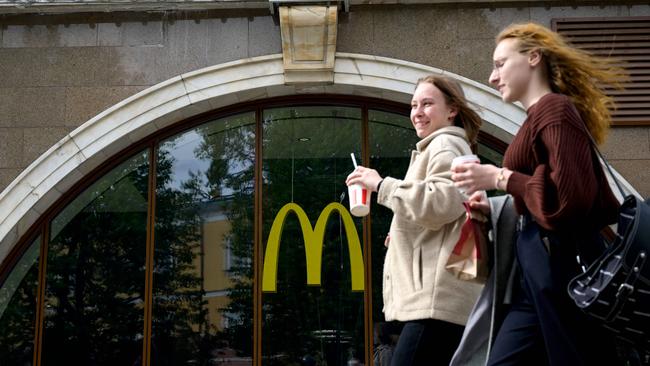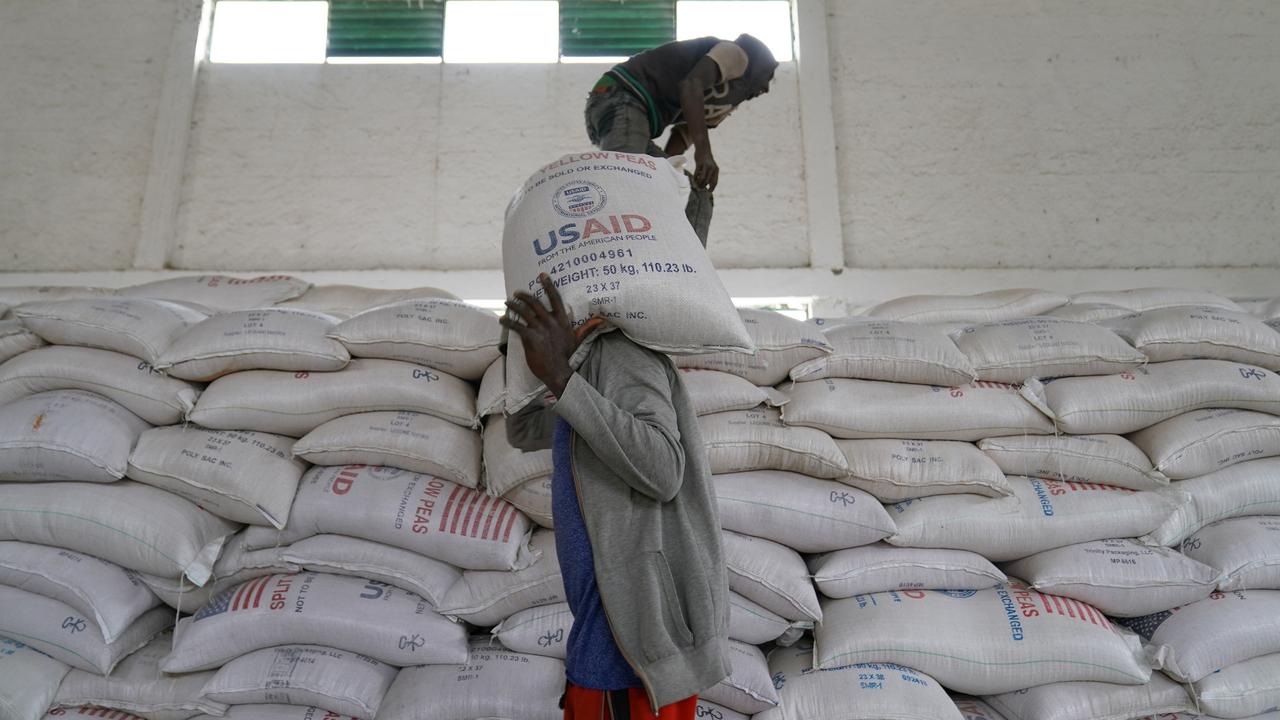McDonald’s leaving Russia after three decades
The American fast-food giant says it will sell its business in Russia over its invasion of Ukraine.

American fast-food giant McDonald’s will quit Russia and sell its business there, ending more than three decades in the country over its invasion of Ukraine.
In deciding to sell up, the fast-food giant joins a raft of Western companies, from automakers to brewers, in exiting Russia having initially opted to pause its operations in the country.
McDonald’s had in March said it would temporarily close its 847 restaurants in Russia, while continuing to pay the 62,000 people it employs there.
Since then, pressure has mounted on Western companies – particularly from the Ukrainian government – to pull the plug on their Russian operations.
Moscow has also pressured companies, threatening legislation to nationalise assets and compel executives to resist Western sanctions.
The departure of McDonald’s from Russia is particularly notable given its arrival was emblematic of a rush among Western companies in the 1990s to enter the country, seeking to profit from its move from communism to capitalism.
McDonald’s opened its first Russian location in Moscow’s Pushkin Square in 1990, when thousands of locals lined up to get their first taste of the American chain’s burgers and fries.
On Monday, McDonald’s said that continued ownership of its business in Russia was no longer tenable nor consistent with its values, as well as posing practical and commercial challenges.
“We have a commitment to our global community and must remain steadfast in our values,” chief executive Chris Kempczinski said in a statement.
McDonald’s said it would now pursue the sale of its entire portfolio of restaurants in Russia to a local buyer.
It said those restaurants would no longer use the McDonald’s name, logo, branding or menu. The company owns and operates 84 per cent of its restaurants in Russia, with the rest run by franchisees.
Russia’s state-run TASS news agency reported on Monday that McDonald’s restaurants in the country would reopen under a different name next month.
In connection with the exit, McDonald’s said it expects to record an accounting charge of between $US1.2 billion and $US1.4 billion, and recognise a significant foreign currency translation loss.
Russia and Ukraine accounted for around 9 per cent of McDonald’s revenue last year, given the high percentage of company-owned restaurants in those markets.
The countries accounted for 2 per cent of sales at all McDonald’s restaurants – including those owned by franchisees – and less than 3 per cent of operating income, the company has said.
McDonald’s owns around 100 restaurants in Ukraine that remain closed.
The decision from McDonald’s came the same day another big Western company, French automaker Renault, reached a deal to cede its 68 per cent stake in Russia’s biggest car maker, AvtoVAZ, to a state-backed entity.
Unlike McDonald’s, though, Renault has kept an option to take back some of its assets in a few years, a potentially valuable hedge on the Russian market stabilising in the medium term.
In recent months, companies have exited or signalled their intention to pull back in various ways.
Oil major Shell has been exiting its Russian businesses in phases, saying most recently it would sell its retail gas stations and lube business to Russian giant Lukoil PJSC.
Shell said it took a $US3.9bn post-tax charge related to its decision to leave Russia.
BP has said it would exit its joint venture stake in Russian producer Rosneft, taking a $US25.5bn hit. It hasn’t said how it would do that.
French banking giant Société Générale said last month that it would exit Russia, selling its operations to one of Russia’s richest people, and taking a more than $US3bn hit.
Budweiser brewer Anheuser-Busch InBev initially said it would suspend its licence for the Bud brand in Russia, but otherwise took a wait-and-see approach in terms of its joint venture there.
It changed course last month, saying it would seek to sell its stake in the business to its partner.
McDonald’s had also kept its options open until now.
In an email to McDonald’s operators, employees and suppliers, Mr Kempczinski said the decision to leave wasn’t easy and wouldn’t be simple to execute given the size of its business in Russia and the challenges of operating there.
Mr Kempczinski said he had focused on five questions: could the company legally operate in Russia; could it meet the needs of customers and workers unimpeded; was its presence in Russia brand-enhancing; and does it make good business sense.
He said the answer to each was no and that he didn’t see that changing for the foreseeable future. The fifth question was whether operating in Russia aligned with the company’s values.
Mr Kempczinski also emphasised the brand’s history in Russia.
McDonald’s had first begun eyeing the Russian market in the late 1970s, and it took repeated discussions with government officials to provide food for the 1980 Moscow Olympics and, later, open restaurants in the country.
Some of McDonald’s locations in Russia eventually became among the chain’s top-performing stores.
On Monday, some ordinary Russians said they would simply get their fast food elsewhere.
“Let McDonald’s leave. In fact, I am happy they are leaving,” said Alexander Vishnyakov, 35, a driver from St. Petersburg.
“I will now switch to Russia’s own fast-food outlets.”
– The Wall Street Journal


